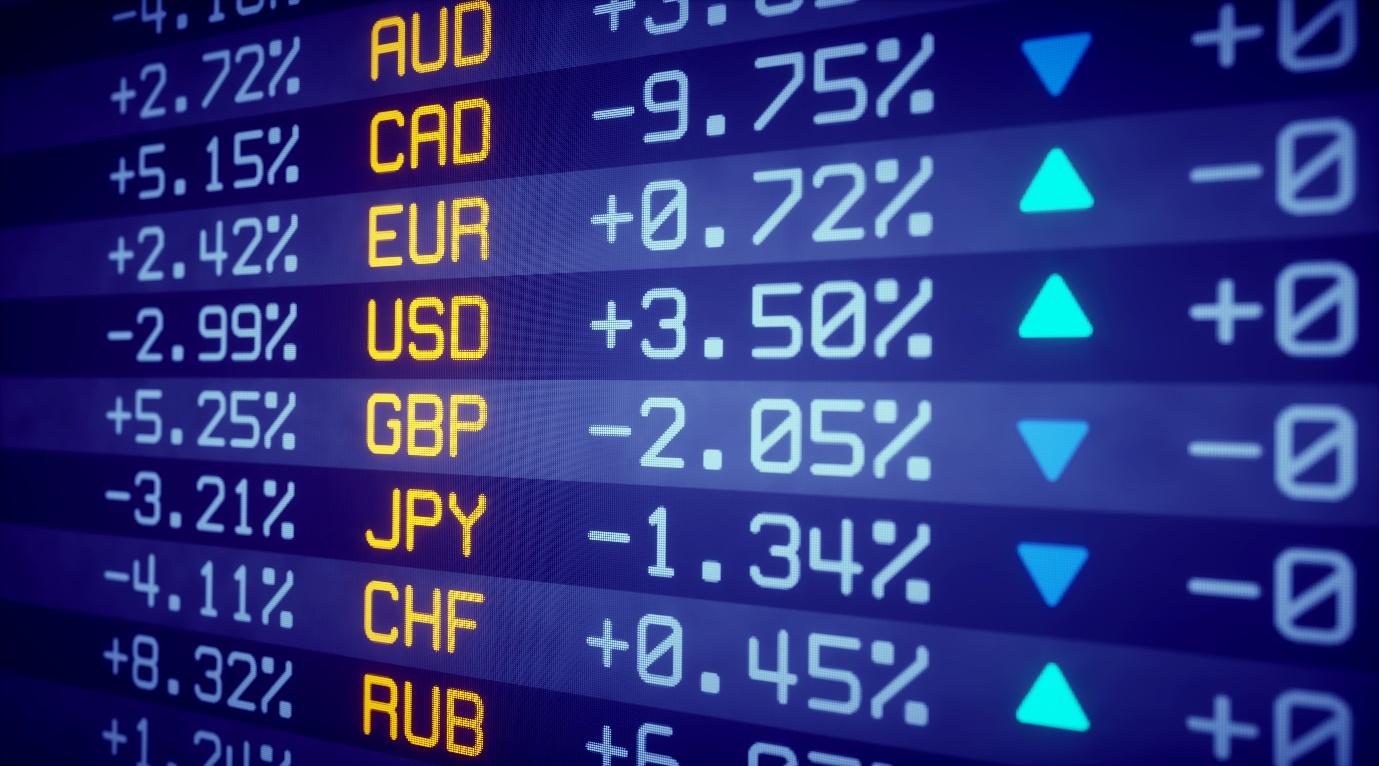Which type of Forex trader are you?
It is very difficult at the outset of your trading career to clearly know what type of Forex trader you will be. Are you going to be a short-term ‘day trader’ or will your focus be more towards larger moves in the market?
The end result will largely depend on your screen time and how much you can dedicate to your analysis and research.

Figure 1 currency rates
Day trading, Swing trading or Long-term trading
A lot of Forex traders have an initial desire to be day traders. This may be with the belief that you need to be constantly monitoring the markets while you execute 30+ trades a day. This is not the case. A 30-point profit is 30 points, no matter how you get there.
A day trader executes many trades trying to capitalise on intraday market moves.
A swing trader holds trades from a few days to several months. It provides a good balance between short-term trading and a long-term view.
A long-term trader holds trades for an extended period, up to a few years. They periodically rebalance and manage their trades and are not usually affected by short-term swings or temporary volatility.
Technical Trader
Most short-term traders will have a solid understanding of technical analysis. This is the study of charts to decipher the next market move.
Fundamental Trader
Longer-term traders have more of an emphasis on economic data to highlight the strength or weakness of one country's currency against another. A fundamental trader is likely to focus on longer-term moves in the market and is not interested in the daily ‘noise’.
No need to rush
You should not feel that you are unable to trade the markets because you only have limited time to dedicate to your analysis. Education and research are the keys to success and traders who take short-cuts are more likely to fail. Trading and analysing from higher timeframes, and trading in smaller size to reflect larger moves, will allow you more time to hone your skills.
To learn more about Forex trading, go to the Pepperstone educational page.
Bei diesem Artikel handelt es sich um eine Werbemitteilung. Diese Information wurde von Pepperstone GmbH bereitgestellt. CFD sind komplexe Instrumente und beinhalten wegen der Hebelwirkung ein hohes Risiko, schnell Geld zu verlieren. Zwischen 74 % und 89 % der Kleinanlegerkonten verlieren beim Handel mit CFD Geld. Sie sollten überlegen, ob Sie verstehen, wie CFD funktionieren und ob Sie es sich leisten können, das hohe Risiko einzugehen, Ihr Geld zu verlieren. Zusätzlich zum untenstehenden Haftungsausschluss enthält das auf dieser Seite enthaltene Informationsmaterial weder eine Auflistung unserer Handelspreise noch ein Angebot oder eine Aufforderung zu einer Transaktion in ein Finanzinstrument. Pepperstone übernimmt keine Verantwortung für die Verwendung dieser Kommentare und die daraus resultierenden Folgen. Es wird keine Zusicherung oder Gewähr für die Richtigkeit oder Vollständigkeit dieser Informationen gegeben. Folglich trägt der Anleger alleinverantwortlich das Risiko für einzelne Anlageentscheidungen. Jede angebotene Studie berücksichtigt nicht das Investment spezifischer Ziele, die finanzielle Situation und die Bedürfnisse einer bestimmten Person, die sie empfangen kann. Sie wurde nicht in Übereinstimmung mit den gesetzlichen Vorschriften zur Erstellung von Finanzanalysen erstellt und gilt daher als Werbemitteilung im Sinne des Wertpapierhandelsgesetzes (WpHG).


